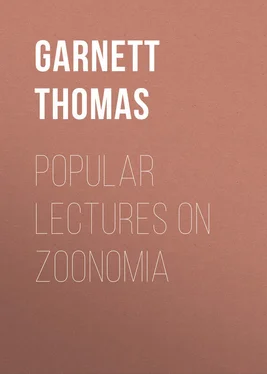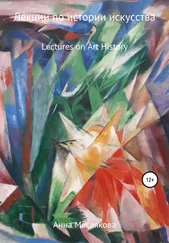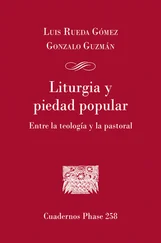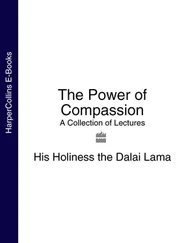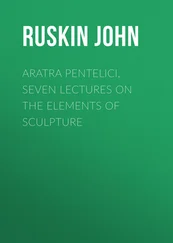Thomas Garnett - Popular Lectures on Zoonomia
Здесь есть возможность читать онлайн «Thomas Garnett - Popular Lectures on Zoonomia» — ознакомительный отрывок электронной книги совершенно бесплатно, а после прочтения отрывка купить полную версию. В некоторых случаях можно слушать аудио, скачать через торрент в формате fb2 и присутствует краткое содержание. Жанр: Биология, foreign_antique, foreign_prose, на английском языке. Описание произведения, (предисловие) а так же отзывы посетителей доступны на портале библиотеки ЛибКат.
- Название:Popular Lectures on Zoonomia
- Автор:
- Жанр:
- Год:неизвестен
- ISBN:нет данных
- Рейтинг книги:4 / 5. Голосов: 1
-
Избранное:Добавить в избранное
- Отзывы:
-
Ваша оценка:
- 80
- 1
- 2
- 3
- 4
- 5
Popular Lectures on Zoonomia: краткое содержание, описание и аннотация
Предлагаем к чтению аннотацию, описание, краткое содержание или предисловие (зависит от того, что написал сам автор книги «Popular Lectures on Zoonomia»). Если вы не нашли необходимую информацию о книге — напишите в комментариях, мы постараемся отыскать её.
Popular Lectures on Zoonomia — читать онлайн ознакомительный отрывок
Ниже представлен текст книги, разбитый по страницам. Система сохранения места последней прочитанной страницы, позволяет с удобством читать онлайн бесплатно книгу «Popular Lectures on Zoonomia», без необходимости каждый раз заново искать на чём Вы остановились. Поставьте закладку, и сможете в любой момент перейти на страницу, на которой закончили чтение.
Интервал:
Закладка:
Thus was lost to society a man, the ornament of his country, and the general friend of humanity. In his personal attachments, he was warm and zealous. In his religion he was sincere, yet liberal to the professors of contrary doctrines. In his political principles, he saw no end, but the general good of mankind; and, conscious of the infirmity of human judgment, he never failed to make allowances for error. As a philosopher, and a man of science, he was candid, ingenuous, and open to conviction; he never dealt in mystery, or pretended to any secret in art; he was always ready in explanation, and desirous of assisting every person willing to acquire knowledge. Virtue was the basis of all his actions; science never possessed a fairer fabric, nor did society ever sustain a greater loss.
LECTURE I. INTRODUCTION
I AM well aware of the difficulties attending the proper composition of a popular course of lectures on the animal economy, which must be essentially different from those generally delivered in the schools of medicine; because it professes to explain the structure and functions of the living body, to those who are supposed to be unacquainted with the usual preliminary and collateral branches of knowledge. It must be obvious to every one, that it can be by no means an easy task to give in a few lectures, a perspicuous view of so extensive a subject; but I trust that the consideration of this difficulty will readily extend to me your indulgence.
That such a course, if properly conducted, must be interesting, needs scarcely to be observed; for the more we examine the structure and functions of the human body, the more we admire the excellence of the workmanship, and beauty of contrivance, which presents itself in every part, and which continually shows the hand of omniscience. The most ingenious of human inventions, when compared with the animal frame, indicate a poverty of contrivance which cannot fail to humble the pretensions of the sons of men. Surely then there are few who will not feel a desire to become acquainted with subjects so interesting.
But there is another point of view which will place the utility of such inquiries in a still stronger light. We shall afterwards see, that our life is continually supported by the action of a number of substances, by which the body is surrounded, and which are taken into the stomach for its nourishment. On the due action of these depends the pleasant performance of the different functions, or the state of health; without which, riches, honours, and every other gratification, become joyless and insipid.
By understanding the manner in which these powers act, or, in other words, by becoming acquainted with the principles of physiology, we shall be enabled to regulate them, so as, in a great measure, to guard against the numerous ills that flesh is heir to: for it is universally agreed, that by far the greatest part of the diseases to which mankind are subject, have been brought on by intemperance, imprudence, and the neglect of precautions, which often arises from carelessness, but much oftener from ignorance of those precautions.
Physiological ignorance is, undoubtedly, the most abundant source of our sufferings; every person accustomed to the sick must have heard them deplore their ignorance of the necessary consequences of those practises, by which their health has been destroyed: and when men shall be deeply convinced, that the eternal laws of nature have connected pain and decrepitude with one mode of life, and health and vigour with another, they will avoid the former and adhere to the latter.
It is strange, however, to observe that the generality of mankind do not seem to bestow a single thought on the preservation of their health, till it is too late to reap any benefit from their conviction: so that we may say of health, as we do of time, we take no notice of it but by its loss; and feel the value of it when we can no longer think of it but with retrospect and regret.
When we take a view of the human frame, and see how admirably each part is contrived for the performance of its different functions, and even for repairing its own injuries, we might at first sight imagine, that such a structure, unless destroyed by external force, should continue for ever in vigour, and in health: and it is by mournful experience alone that we are convinced of the contrary. The strongest constitution, which never experienced the qualms of sickness, or the torture of disease, and which seems to bid defiance to the enemies of health that surround it, is not proof against the attacks of age. Even in the midst of life we are in death; how many of us have contemplated with admiration the graceful motion of the female form; the eye sparkling with intelligence; the countenance enlivened by wit, or animated by feeling: a single instant is sufficient to dispel the charm: often without apparent cause, sensation and motion cease at once; the body loses its warmth, the eyes their lustre, and the lips and cheeks become livid. These, as Cuvier observes, are but preludes to changes still more hideous. The colour passes successively to a blue, a green, and a black; the flesh absorbs moisture, and while one part of it escapes in pestilential exhalations, the remaining part falls down into a putrid liquid mass. In a short time no part of the body remains, but a few earthy and saline principles; its other elements being dispersed through air, or carried off by water, to form new combinations, and afford food for other animals.
The human body has been defined to be a machine composed of bones and muscles, with their proper appendages, for the purpose of motion, at the instance of its intelligent principle. From this principle, nerves, or instruments of sensation, are likewise detached to the various parts of the body, for such information as may be necessary to determine it to those motions of the body, which may conduce to the happiness of the former, and the preservation of both.
It may perhaps be objected to this definition, that the body consists of other parts besides bones, muscles, and nerves; this is undoubtedly true; but, if we examine more minutely, we shall find that all the other parts, as well as functions of the body, seem only to be subservient to the purposes I have mentioned. For, in the first place, the muscles which are necessary to the motions of the body, are, from the nature of their constitution, subject to continual waste; to repair which waste, some of the other functions have been contrived.
Secondly, most of the other parts and functions of the body, are either necessary to the action of the muscles, or to the operation of the intelligent principle, or both.
Lastly, from the sensibility, and delicate structure, of the muscles and nerves, they require to be defended from external injuries: this is done by membranes, and other contrivances, fitted for the purpose.
To see this more clearly, we shall examine a little more particularly how each of the functions is subservient to the muscular and nervous systems. For this purpose it may be observed, 1st. that the stomach and digestive faculties serve to assimilate the food, or convert it into matter proper to repair the continual waste of solids and fluids. The circulation of the blood besides being absolutely necessary, as we shall afterwards see, to the action of the muscles, distributes the nourishment, thus assimilated and prepared by the stomach, to all parts of the body. The different glands separate liquors from the blood, for useful, but still for subservient purposes. Thus the salivary glands, stomach, pancreas, and liver, separate juices necessary to the proper digestion and assimilation of the food. The kidneys serve to strain off from the blood the useless and superfluous water, salts, &c. which if allowed to remain in the body would be very injurious to it.
Читать дальшеИнтервал:
Закладка:
Похожие книги на «Popular Lectures on Zoonomia»
Представляем Вашему вниманию похожие книги на «Popular Lectures on Zoonomia» списком для выбора. Мы отобрали схожую по названию и смыслу литературу в надежде предоставить читателям больше вариантов отыскать новые, интересные, ещё непрочитанные произведения.
Обсуждение, отзывы о книге «Popular Lectures on Zoonomia» и просто собственные мнения читателей. Оставьте ваши комментарии, напишите, что Вы думаете о произведении, его смысле или главных героях. Укажите что конкретно понравилось, а что нет, и почему Вы так считаете.
